On business, sustainability and full harvests
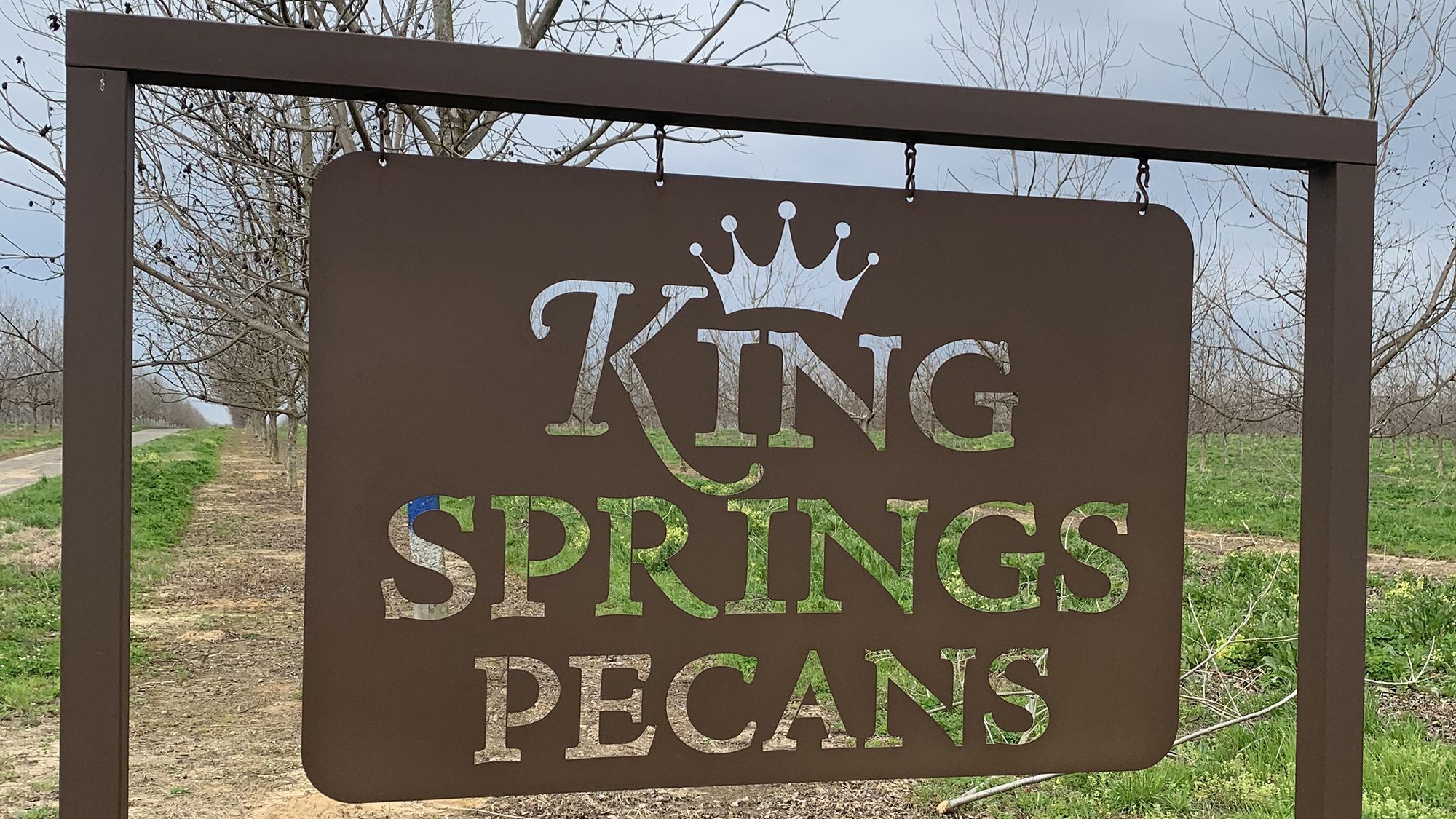
Paul Quirós ’79 attended law school after graduating from Furman, where the economics major began the groundwork for his career as a successful corporate attorney. Little did he know that his undergraduate studies would also be useful in the business he took up decades later – running a large, flourishing Georgia pecan farm.
“It was a great experience to go to (Furman),” said Quirós. “It was a very lively and engaged community.”
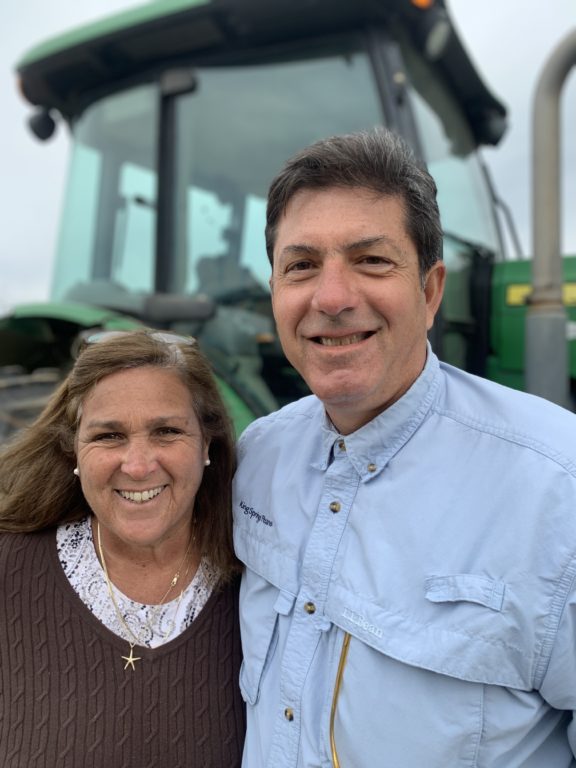
Stacy ’80 and Paul Quirós ’79
In addition to providing a rich intellectual and social life, Furman also led him to the woman he would marry, music major Stacy Shuman Quirós ’80. A native of Atlanta, Quirós attended Mercer University School of Law in Macon, Georgia, then spent 35 years practicing in Atlanta, the last two decades with King & Spalding.
When he had the chance to retire early, he and one of his law partners, Dwight Davis, began to look for another opportunity. In 2011 they bought some land and started planting pecan trees.
Quirós recalled how U.S. Sen. Sam Nunn (D-Georgia), a law partner of Quirós and Davis, and a large pecan farmer in Houston County, advised them: “If you’re going to do this well, you need good land, big water resources, and the right varieties of pecans. You guys ought to look in Houston County.”
“And he was right,” said Quirós, “this will be our seventh full harvest.”
The nearly 1,000-acre farm, situated about two hours south of Atlanta, became King Spring Pecans. It is dotted with 21,000 pecan trees, said Quirós, adding that they manage additional trees and acreage for a friend, and are in a cooperative with three other farms.
Their business is built around the principles of intentional community, sustainable farming and Christian stewardship, said Quirós.
“We … act in ways that honor the Lord,” he said. “It’s his, and we get to run it for a while.”
That perspective extends to everyone who works at King Springs, said Quirós.
“You can’t be a successful farm without making a profit, but people need to have living wages,” he said. “We want to feed people healthy food at fair prices and treat the land and the people who work for us a certain way. They’re not just employees, but part of a very valuable team.”
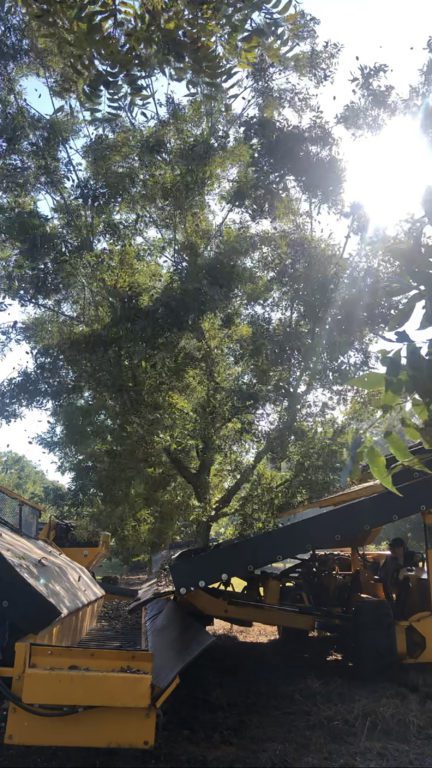
Harvesters shaking a pecan tree
The farm also practices integrated pest management, which eschews the use of chemicals in favor of providing habitat for beneficial insects such as lady bugs that eat the pests they’re trying to control, said Quirós.
“We have sprayed very little insecticide in the past 11 years,” he said. “You kill the beneficial insects as well as the pests by blanket spraying, and this just encourages a jump in the pest populations when the insecticides wear off.”
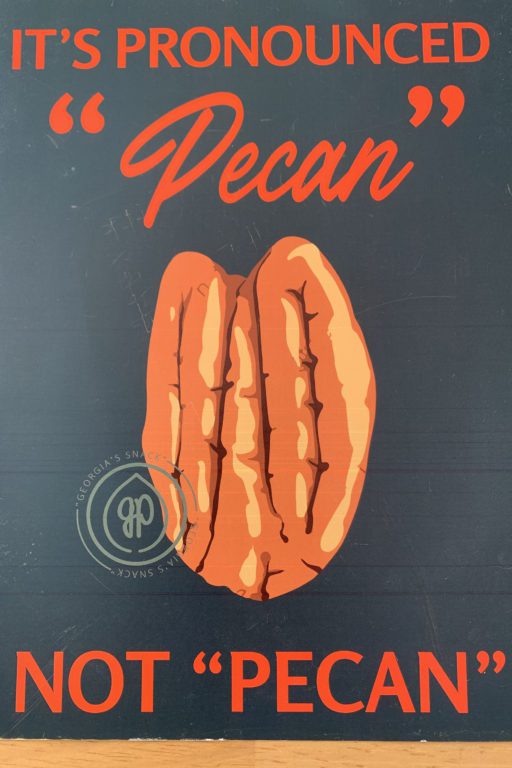
A sign from King Springs Pecans
Though he no longer practices law, the father of four and grandfather of three still serves on corporate boards. And last year, he hosted a Furman intern, Artem McCall ’20, at the farm and taught a sustainability class at The Shi Institute for Sustainable Communities, as well.
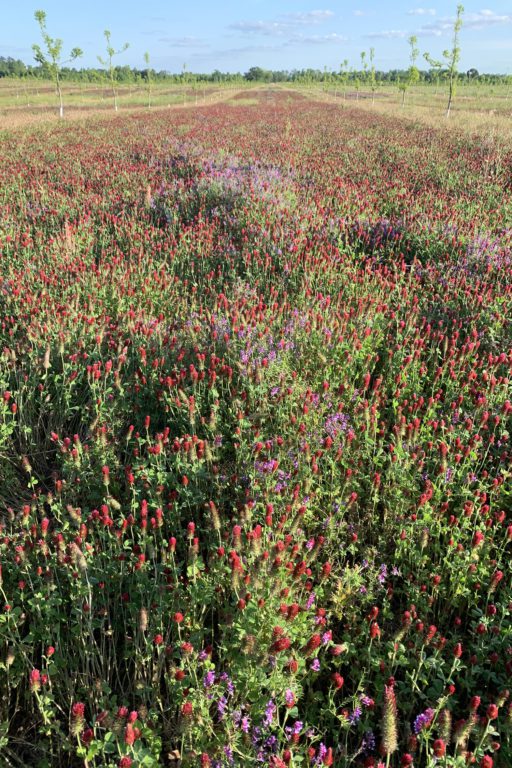
Clover, vetch (both legumes that naturally fix nitrogen in the soil as opposed to synthetic fertilizers) and indigenous wildflowers on the farm
“It was nice of them to ask me,” he said. “It was fun to come back.”
Quirós was happy as a lawyer but no longer wants to be sitting in conference rooms.
“I want to be outside working on the trees,” Quirós said.
He grows large, early-season pecans that are prized around the world and sprinkles them on his salad every day. Quirós is also an officer of the American Pecan Promotion Board that markets pecans worldwide. Sales of pecans in the United States have increased 32% in the last four years, primarily by increasing awareness of the health benefits and the different ways pecans can enhance meals.
But can Quirós settle the age-old debate? Is it pea-cans, emphasis on the first syllable, or pi-cahns, with the stress on the second syllable? He chuckled and recalled what someone once told him.
“Them that grows ’em calls ’em pea-cans,” said Quirós, “and them that tries to sell ’em for more than $2.50 a pound calls ’em pi-cahns.”